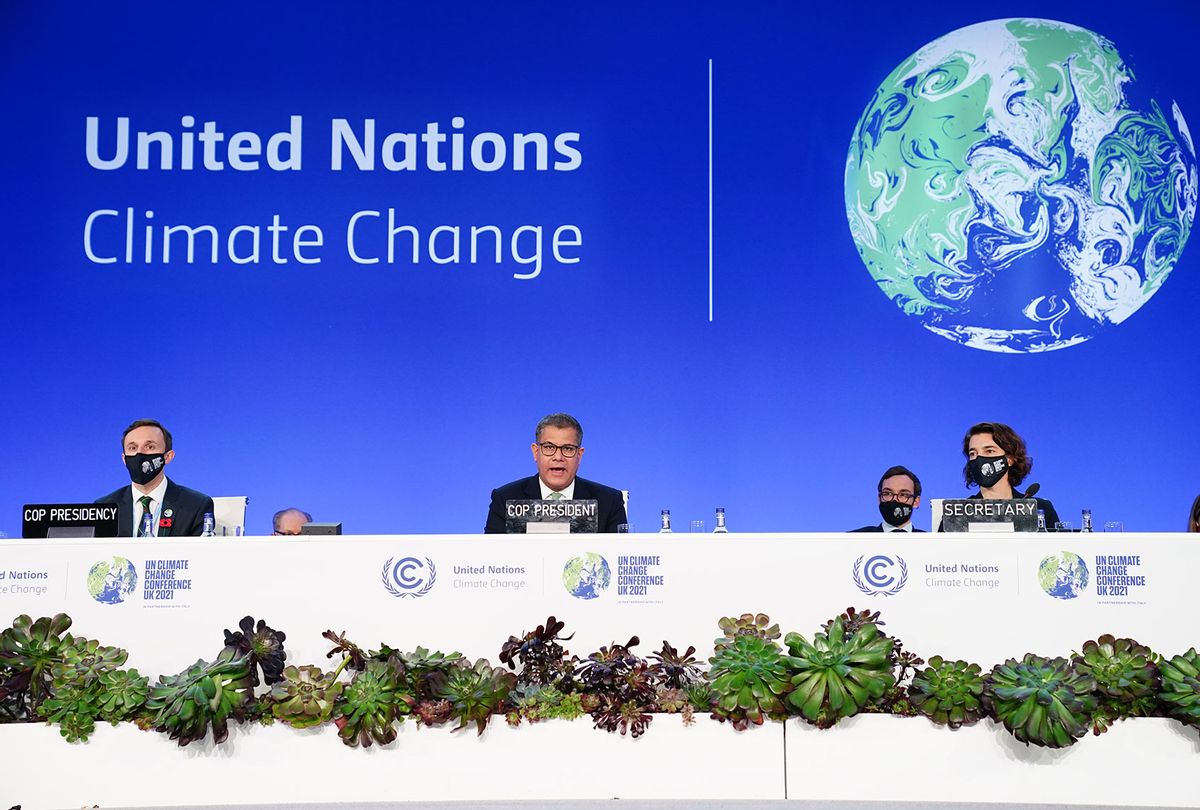The scale of devastation that unprecedented flooding brought to Pakistan this summer is hard to fathom. A third of the country is underwater, and more than a million homes have been damaged or destroyed. More than 1,700 people have died. About 5.7 million people are facing food shortages, and around 600,000 pregnant women require urgent access to healthcare.
We know that the rainfall contributing to this flooding was intensified by global warming — the planet has already warmed 1.2 degrees Celsius (2.2 degrees Fahrenheit) on average since the industrial revolution. In the parlance of the international debate over climate change, the effects of such climate-driven catastrophes are termed "loss and damage." Because the countries that suffer the most loss and damage tend to be countries that, like Pakistan, were late to industrialize and therefore are relatively blameless for the scale of climate change so far, activists and leaders in developing countries are increasingly calling on wealthy, early-industrializing nations to compensate them for what they've lost. The issue is set to take center stage at the 27th United Nations climate change conference, called COP27, which will be held in Egypt next month.
Small island nations and developing countries have been advocating for funding to address loss and damage for more than two decades, and for the first time they have finally succeeded in getting it included on the official agenda for the conference. Given that COP27 is being hosted by a developing nation for the first time in six years, Egypt's special representative for the conference said that the COP27 leadership is "putting a lot of effort" into moving the conversation forward on loss and damage. The recent floods in Pakistan, a country responsible for less than 1 percent of the world's historical carbon emissions (though it's home to around 3 percent of the world's population), have further highlighted the urgent need for loss and damage funding. In an effort to build on this momentum leading up to COP27, the Scottish government organized a two-day conference on loss and damage earlier this week.
"People in the Global South and emerging economies are already paying the price of climate change every single day," Scottish First Minister Nicola Sturgeon said in the conference's opening remarks. Developed countries should be recognizing "a moral responsibility to address this issue," she added.
Scotland has played a crucial role in elevating loss and damage in climate negotiations. Last year at COP26, which was hosted in Glasgow, Sturgeon made a groundbreaking announcement recognizing Scotland's historic role in the climate crisis and pledged £2 million (about $2.2 million) to compensate developing nations for loss and damage. Although a small sum compared to the scale of the problem, the commitment proved to be a catalyst, prompting others to follow suit. Wallonia, Denmark, and a group of philanthropies have since pledged funds, and the tally for loss and damage funding now stands at $19.5 million.
At this week's conference, Sturgeon emphasized the need for new financing that adds to the pool of money that has already been committed to various climate projects. She argued that loss and damage funding should not increase the debt burden of developing nations. (According to the International Monetary Fund, about 60 percent of low-income countries are at high risk of debt distress or already in debt distress.)
Wealthy nations promised to raise $100 billion a year by 2020 to fund climate projects in developing countries, but they have fallen short of that target by about $20 billion, according to recent estimates. Of the approximately $80 billion in funding that has been raised, a significant portion is in the form of loans that countries are expected to repay. A recent study by Oxfam, a global charity, found that more than 60 percent of the $11.7 billion in climate funds raised for West African countries between 2013 and 2019 took the form of loans.
"These [climate] losses are bad enough in themselves, but they should absolutely not also lead to further indebtedness for the nations who have overwhelmingly been the victims of climate change," Sturgeon said.
Currently, climate-related finance for developing countries takes many forms: It can arrive as humanitarian aid following a natural disaster, such as the aid that is now flowing to Pakistan. It can be disbursed from United Nations-backed funds set up to help developing nations prevent further global warming and adapt to the effects of climate change. And it can take the form of disaster risk and climate migration management funding. Funding for loss and damage can overlap with each of these different types of funding, and researchers and advocates at this week's conference in Scotland argued that these efforts should no longer take place in isolation — that a unified international approach to loss and damage funding would better tackle the scale of the problem.
In an interview with the Guardian last month, Pakistan's climate minister Sherry Rehman said, "There is so much loss and damage with so little reparations to countries that contributed so little to the world's carbon footprint that obviously the bargain made between the global north and global south is not working."
At the recent conference, Sturgeon said that the "task for the countries that gather at COP27 is to start making good on that bargain." She called on developed countries to commit funding and not to wait for consensus on how to address loss and damage.
"Further delay is unconscionable and is not acceptable," she insisted.




Shares